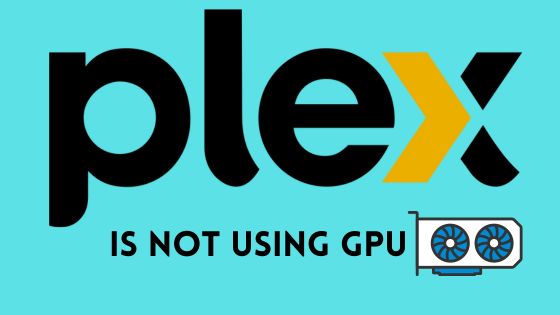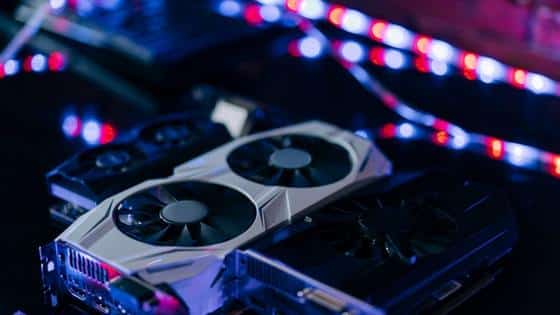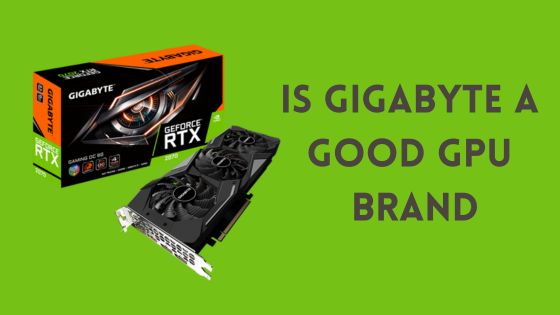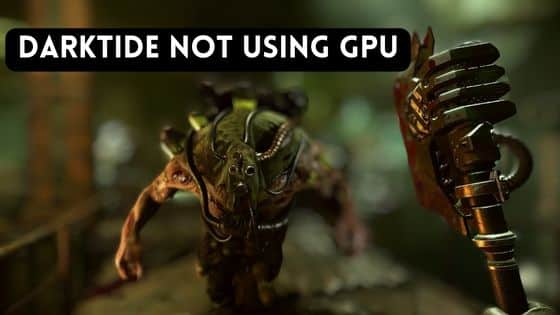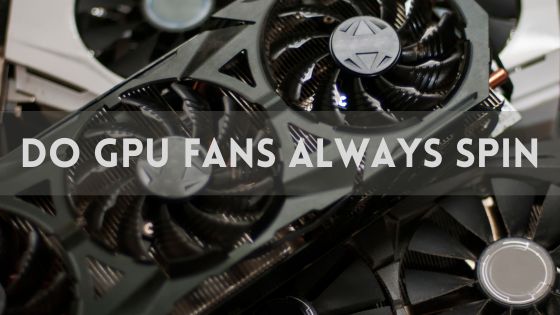Why PC Gaming is Better than Console
The debate between PC and console gaming has raged on for decades. With new generations of consoles and gaming PCs being released, the comparisons and battles start anew.
But when all is said and done, there are some clear advantages that PC gaming has over consoles.
PC gaming offers superior graphics, performance, versatility, and value compared to console gaming. With the ability to fully customize and upgrade your setup, PC gaming allows for a truly personalized and cutting-edge experience that consoles simply can’t match.
Graphics – PCs Provide More Detailed and Immersive Visuals
When it comes to graphics, PCs have a decisive edge over consoles. Gaming PCs can utilize top-of-the-line GPUs, fast processors, and ample RAM to deliver visuals at 4K resolution with buttery smooth frame rates exceeding 100 fps.
Console games have to be designed to run on standardized hardware, meaning graphics settings need to be scaled down. Often console games run at 1080p resolution and 30-60 fps. While the differences may seem minor on paper, seeing PC and console versions side-by-side reveals a stark contrast.
PC gaming allows you to ramp up settings like texture quality, shadows, draw distances, anti-aliasing, ambient occlusion, and more to breathe new life into game worlds. Explosions and spells have a dazzling intensity, weather effects are stunningly realistic, and environments come alive with detail.
For competitive multiplayer games, higher frame rates translate into smoother, more responsive controls that can give PC gamers an edge. In single player adventures, the heightened visual immersion makes you feel truly part of the experience rather than just a viewer.
The customizable graphics of PC gaming lead to more detailed, crisp, and realistic in-game visuals and effects that make gaming worlds feel alive.
Performance – Upgrades Provide Faster Load Times and Gameplay
Console performance is constrained by fixed hardware that inevitably becomes outdated over a 5–7-year lifespan. PC gaming systems, on the other hand, can be continually upgraded to provide better performance.
By upgrading components like your GPU, CPU, RAM and storage, you can improve load times, increase frame rates, and reduce in-game lag or glitches. Where consoles eventually struggle to maintain 30 fps on new titles months after launch, a well-equipped gaming PC can continue hitting 60+ fps years later.
PC gaming also benefits from cutting edge storage solutions. Solid state drives can radically speed up load times compared to the stock hard drives found in consoles. With quick access to in-game assets, levels transition seamlessly, and you spend more time playing and less time waiting.
Performance upgrades let you tune your PC for the experience you want. Competitive esports players can optimize for ultra-high frame rates to gain an edge, while enthusiasts can balance quality and performance for smooth 4K gaming. Either way, your system can evolve over time to meet the requirements of new games.
Upgradeable PC gaming hardware provides long-term performance benefits that consoles can’t match due to their static components.
Customization – Personalize Your Gaming PC and Games
A major advantage of PC gaming is the ability to extensively customize and tailor your setup and gaming experience. Unlike closed consoles, PC gaming actively embraces modification and personalization.
Customize Your Hardware
Building your own PC offers near limitless customization options. You can handpick components based on your budget and performance needs. Fancy case lighting, liquid cooling systems, and custom cables let you style out your build.
Even pre-built PCs allow some customization of parts. And you can always add accessories like gaming mice, specialized controllers, VR headsets, racing wheels, and multi-monitor arrays tailored for your favorite games.
Modify Your Games
PC gaming thrives off of user-generated content and modifications that can fundamentally change both look and feel of games. The modding community creates custom maps, character models, textures, quests, gameplay logic, and more.
Mods let you fix bugs, unlock hidden features, improve graphics, or even create entirely new games using existing assets. Games like Skyrim have flourished for nearly a decade thanks to user mods expanding content. Console games are locked down, preventing this level of modification.
Adjust Gaming Settings
PC gaming software can be tweaked to your liking as well. You can remap keys, create macros, optimize graphics settings for your rig, use community patches, and download mods to enhance the experience. Console users have to stick to standardized defaults.
PC gaming hands control over to you by letting you extensively customize hardware, software, and games themselves for a personalized experience.
Variety of Games – Enjoy Exclusives and Niche Genres
The sheer variety of gaming experiences and options available on PC far exceeds what closed console platforms can offer. Thousands of titles across every genre imaginable can be played on PC.
More Exclusive Titles
Consoles tempt buyers with flagship exclusives like Halo, Uncharted, and Super Mario. But PC has its fair share of big exclusives too, including StarCraft, World of Warcraft, League of Legends, Counter-Strike, and Microsoft Flight Simulator.
Additionally, entire genres tend to favor PC or even release exclusively on it due to complexity and controls. Strategy games, MMOs, competitive shooters, simulators, and niche indies have a bigger home on PC.
Indie Game Scene
PC gaming has a thriving indie game scene. The openness of PC distribution platforms like Steam allows tiny studios to self-publish unique and innovative titles. Many can only exist thanks to PC gaming support.
Consoles have a stricter approval process that many indie devs don’t have the resources to tackle. As a result, diverse indie darlings like Stardew Valley, Undertale, and Cuphead got their start on PC first.
Classic and Retro Titles
While consoles are often incompatible with past games, PC gaming offers windows into gaming history. Classic games from the 90s and even 80s can be played on modern systems thanks to digital distributors and emulators. Try finding that kind of backwards compatibility on console.
PC gaming’s open platforms means more exclusive titles, niche genres, retro classics, and indie innovation not found on mainstream consoles.
Multiplayer Flexibility – Play With Anyone Across Platforms
Console gaming locks you into closed online ecosystems owned by Sony, Microsoft, and Nintendo. But PC connects you to a broader multiplayer gaming community.
PC gamers can play on the same servers as their friends regardless of launching a game through Steam, Origin, Uplay, or the Epic Games Store. Consoles segregate players based on platform, restricting who you can play with.
Cross-platform support is also accelerating on PC. Titles like Fortnite, Rocket League, Dead by Daylight, and Call of Duty: Warzone all allow PC users to play with friends on console. Options for connecting gaming communities are far more limited on consoles themselves.
For esports and competitive gaming, PC reigns supreme. Nearly all major tournaments and pro players stick to PC for its performance, precision, and flexibility. Good luck trying to go pro on Xbox or PlayStation.
PC gaming tears down multiplayer barriers through cross-platform connectivity and better support for competitive gaming.
Backward Compatibility – Rediscover Classics on Modern PCs
Console generations represent firm cut-off points in compatibility. The PS5 won’t natively run PS3 games, Xbox One can’t play Xbox 360 titles, and so on. Preserving gaming history requires keeping outdated consoles.
Meanwhile in PC gaming, you can download and enjoy decades old titles on modern machines. Some may require community patches and fixes, but PC gaming has a penchant for keeping the past alive.
Games are also safer from licensing issues on PC. As servers shut down or deals expire, digital console games can be rendered unplayable if they require online authentication or have parts removed. On PC, there’s always a way thanks to mods and cracks.
Between digital marketplaces like GOG, distribution platforms like Steam, and emulators, it’s easy to revisit golden oldies on PC. Good luck getting your N64 cartridges or PS2 discs running on Switch and PS5.
PC gaming values and helps preserve gaming history through extensive backward compatibility extending to past decades.
Modding Community – User Content Extends Lifespans
One of the greatest strengths of PC gaming are mods created by the community that can radically transform games long after release. User generated content keeps PC games feeling fresh years later.
Mods come in all shapes and sizes. You can install texture packs in Skyrim for stunning visual overhauls. Content mods expand stories and add new quests and areas. Gameplay mods create new mechanics or wildly change existing ones.
The variety is endless. Wishing for Thomas the Tank Engine as a dragon in Skyrim? Alien dinosaurs in ARK Survival Evolved? Shrek in Resident Evil 2? On PC, your dreams can become reality thanks to passionate community modders.
Developers even embrace mods. Bethesda relies on its modding community to fix bugs and flesh out games. The Steam Workshop makes finding and installing mods a breeze. Consoles largely ignore mods, severely limiting their usefulness.
PC gaming has a vibrant modding culture that expands the lifespans of games exponentially through user generated content.
Cost-Effectiveness – Cheaper Games and Free Online Play
At first glance, consoles seem cheaper. But over years of gaming, PC emerges as the more cost-effective platform. Savings come from cheaper games and lacking paid online requirements.
Cheaper Games
New releases tend to cost $60 on both PC and consoles. But PC game prices plummet quickly thanks to frequent sales and competition between digital retailers. Even AAA titles can be snagged for $20-30 within months of launch. Waiting a bit makes PC gaming very affordable.
Console games see price drops too, but physical discs hold value better. Digital console storefronts also lack the deep discounts of Steam sales. PC gaming ultimately provides more bang for your buck.
No Online Fees
Console gamers fork out an additional $60 yearly for PlayStation Plus or Xbox Live Gold to play online. PC gamers simply connect to servers for free for the vast majority games. These membership fees really add up over time.
Although upfront costs are higher, PC gaming saves money long-term through cheaper games and lacking online subscription fees.
Productivity and Versatility – Multipurpose Machines
Gaming PCs are not one trick ponies only useful for fragging foes in Fortnite. They can pull double, triple, or even quadruple duty serving needs beyond gaming.
PCs are highly capable multimedia machines great for streaming video and music. Create presentations, documents, art, and videos with productivity software. Use that beefy GPU for 3D modeling, CAD engineering, or video editing. Coding, databases, machine learning? PCs can do it all.
While consoles focus purely on streamlined gaming experiences, PCs are versatile tools able to tackle work, education, creative hobbies, and entertainment. And of course they play thousands of games too.
PCs are not just powerful gaming machines but general purpose devices able to handle a wide range of productivity and multimedia uses.
Future-Proofing – Upgrade to Play Tomorrow’s Games
Console performance is set in stone the day you buy one. That $500 box will run 2022’s games decently but struggle down the road. PC components can be continuously upgraded.
To play a new console game, you need to buy the latest generation system at launch every 5-7 years for hundreds of dollars. Meanwhile PC gamers can extend lifespans incrementally by swapping the GPU, adding RAM, or getting a speedier SSD.
Small upgrades prevent your PC from being quickly outclassed by the demands of new games. Console generations represent hard cutoffs, essentially making old systems obsolete for modern gaming. Choose wisely when buying a new generation or get left behind.
Console gaming eventually hits expiration dates as hardware ages. But PC gaming tech can evolve incrementally to stay current through affordable upgrades.
In Summary: Evaluating PC vs Console Gaming
Looking at the big picture, PC and console gaming both have pros and cons that come down to your budget, preferences, and needs as a gamer. But when all factors are weighed, PC emerges as the superior platform.
PC gaming excels in the areas of visuals, performance, customization, game selection, mods, affordability, flexibility, and futureproofing. These combine to provide the pinnacle of gaming experiences.
Consoles offer more simplicity for plug-and-play gaming and flagship exclusive franchises you won’t find on PC. But their technical limitations compared to fully featured gaming PCs make it hard to ignore the benefits of PC gaming.
For the gaming connoisseur wanting cutting-edge performance, ultimate visuals, and personalized experiences, PC is king. The ability to extensively customize and upgrade your setup provides gaming flexibility no mainstream console can match.
If you’re on the fence deciding between diving into console or PC gaming, consider your options carefully. Look beyond just initial sticker prices to long term costs, capabilities, and breadth of experiences. For many gamers, including myself, PC emerges as the clear winner when all factors are evaluated.
The choice is yours, but PC offers compelling advantages that next generation consoles will struggle to beat. For the ultimate gaming machine and platform, PC gaming is better than console.
FAQs
Is PC or console gaming harder?
PC gaming requires more technical knowledge compared to consoles. Factors like installing games, tweaking settings, upgrading hardware, and troubleshooting issues make PC gaming more complex. Consoles are designed for simple plug-and-play use.
Are consoles losing popularity?
Consoles remain hugely popular gaming devices. Sales of the latest PlayStation and Xbox consoles show many gamers still prefer consoles for their ease of use and affordability. However, PC gaming is seeing rising popularity thanks to growth in competitive esports and live streaming.
What percent of gamers use PC?
Around 75% of gamers use a PC, while about 49% use consoles according to current industry estimates. Many gamers use both platforms. PCs have an advantage in Asian markets like China where consoles have historically been less popular.
What console do pro gamers use?
The majority of professional esports competitors use a PC. PC gaming offers advantages for competitive play like precision mouse and keyboard controls, higher frame rates, and extensive customization. However, some fighting game tournaments use PlayStation consoles.
Who sells more games PC or console?
It depends on the region, but globally console game sales generate more revenue compared to PC game sales. However, PC gaming revenue has been growing steadily and is estimated to overtake consoles in the next few years.
Are PC games cheaper than console?
Generally, yes. New PC game releases tend to match console prices around $60. However, PC game prices drop quicker after launch and go on sale more frequently compared to console games. Fierce competition between digital PC game stores drives prices down.
Which market is bigger PC or console?
Currently, consoles represent a bigger gaming market in terms of overall revenue. But PC gaming market share is rapidly expanding thanks to free-to-play online titles, competitive gaming, and increased accessibility of gaming PCs. The gap continues to narrow each year.
